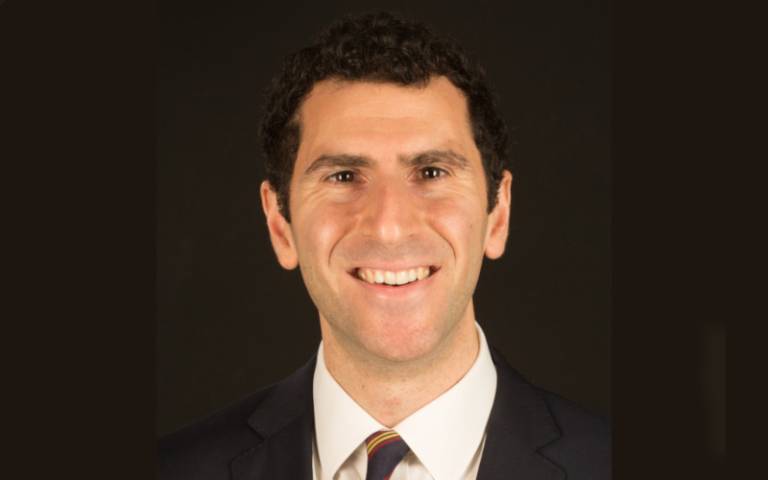Spotlight on... Hani Marcus
9 November 2023
This week we meet Hani Marcus, Consultant Neurosurgeon at the National Hospital for Neurology and Neurosurgery. Hani chats to us about his research into surgical robotics and AI and his advice when it comes to imposter syndrome.

What is your role and what does it involve?
I’m a Consultant Neurosurgeon at the National Hospital for Neurology and Neurosurgery, and an Honorary Associate Professor at the UCL Queen Square Institute of Neurology. While I specialise in treating patients with pituitary adenomas and other skull base tumours, my work isn't confined to the operating room. I'm also deeply invested in marrying advanced technologies like AI and robotics with surgical procedures, aiming to improve patient outcomes and make the surgeon's job a bit easier. I serve as Deputy Director of the UCL Wellcome / EPSRC Centre for Interventional and Surgical Sciences (WEISS) and the regional Lead for Neurosurgery and Brain Cancer at the NIHR Clinical Research Network. Education is another passion of mine, and I am a Director for the Queen Square Simulation Centre and the UK's first MRes Neurosurgery programme.
How long have you been at UCL and what was your previous role?
I joined the UCL family in 2019. Before that, I had the good fortune of being part of the first cohort to experience an integrated academic training pathway. I earned my stripes at Cambridge and later did my PhD in surgical robotics at Imperial under the guidance of Prof Lord Ara Darzi.
What working achievement or initiative are you most proud of?
Perhaps it's a bit cheeky to say, but the trainees I've mentored who have outshone me bring me great pride. It's gratifying to see the next generation take the reins.
Tell us about a project you are working on now which is top of your to-do list
I'm thrilled to be translating lab-based technologies into practical applications for pituitary surgery. It's taken about a decade of hard graft, but it's rewarding to finally see these advancements begin to make a tangible difference for patients.
What is your favourite album, film and novel?
Choosing favourites in these categories is a bit like asking me to select a favourite surgical instrument — it varies depending on the situation at hand.
What is your favourite joke (pre-watershed)?
A classic in medical circles: What's the difference between a neurosurgeon and God? God doesn't think he's a neurosurgeon.
Who would be your dream dinner guests?
Cliché it may be, but nothing beats quality time with my family and close friends.
What advice would you give your younger self?
I'd share an anecdote about Neil Armstrong, who, despite being the first man to walk on the moon, reportedly felt like an impostor, thinking he had just gone where he was sent. It highlights a critical lesson: "Don't mistake confidence for competence." Early in my career, impostor syndrome was a constant companion. So, my advice would be to aim for competence; it's the true yardstick by which to measure oneself. Confidence might open doors, but it's competence that will keep you in the room.
What would it surprise people to know about you?
I've got a collection of rejection letters that could wallpaper a room.
What is your favourite place?
North Wales is a special place for me, and we try to get back there whenever we can.
 Close
Close

